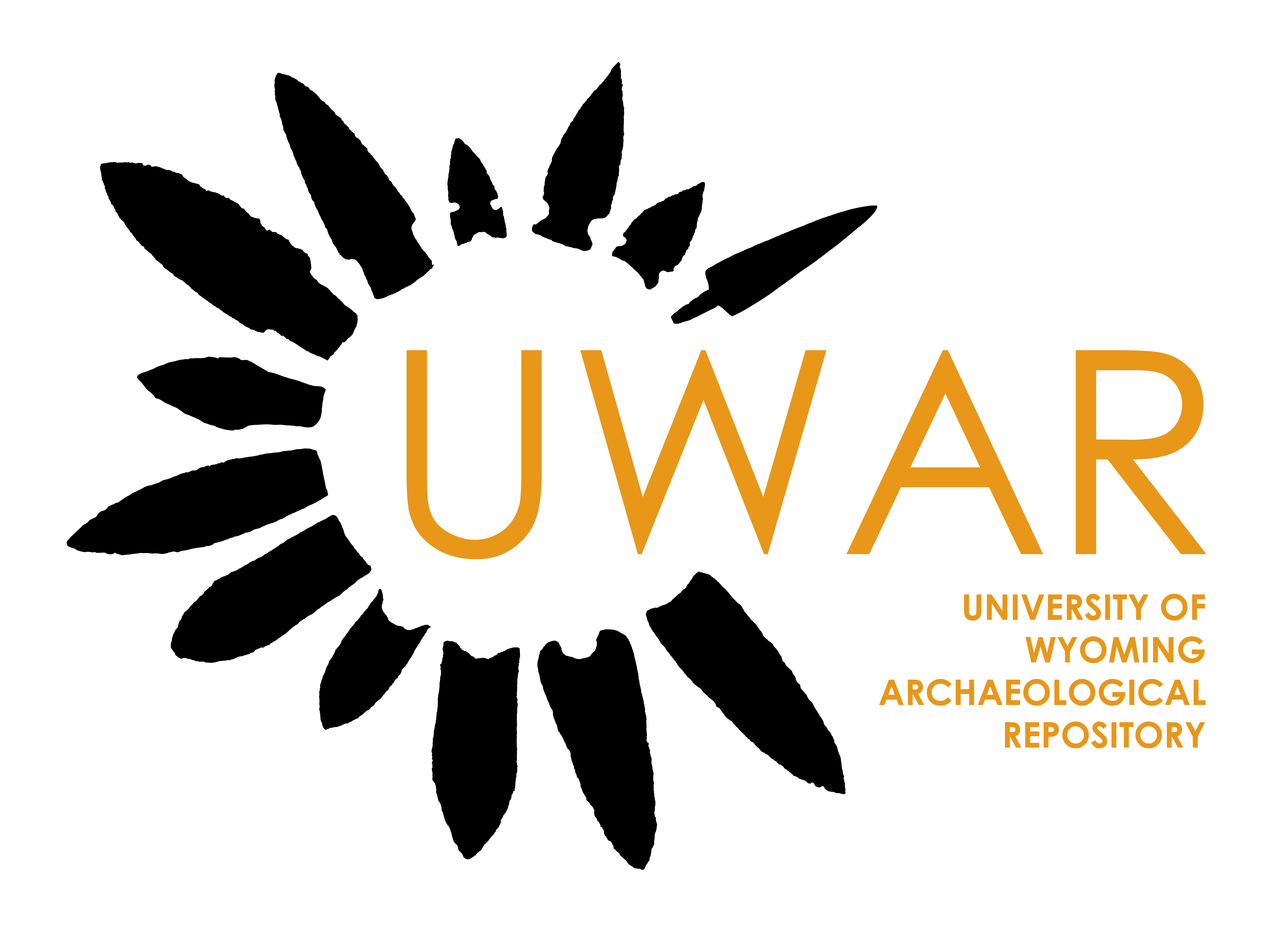
The University of Wyoming Archaeological Repository (UWAR) is the largest archaeological repository in the state and the only federal repository in Wyoming. It houses more than three million artifacts from over 15,000 sites representing all periods of prehistory and early history in Wyoming. These data form the basis for scholarly interpretations about human activity spanning over 11,500 years of occupation on the High Plains and Rocky Mountains.
Located in Laramie on the University of Wyoming (UW) campus, UWAR functions jointly under the UW Department of Anthropology and the Office of the Wyoming State Archaeologist (OWSA). The Department of Anthropology has been an archaeological repository for over 50 years. In addition to the Collections Manager, UWAR employs UW students and regularly takes interns from the UW Museum Studies minor program. The Collections Manager also teaches the Introduction to Archaeological Collections Management class. Training students helps UWAR properly curate artifact collections and also teaches future archaeologists about the importance of curation in the discipline.
The Wyoming Department of State Parks and Cultural Resources and the University of Wyoming maintains a Memorandum of Understanding to ensure that Wyoming has a centralized repository for archaeological collections. To this end, UWAR is staffed and managed by the Wyoming Office of the State Archaeologist in a facility owned by the University of Wyoming. Management of archaeological collections is directed by federal regulation 36 CFR 79, the Curation of Federally Owned and Administered Collections. The code establishes definitions, standards, procedures, and guidelines to be followed to preserve collections of prehistoric and historic material remains and associated records recovered under the authority of the Antiquities Act, the Reservoir Salvage Act, Section 110 of the National Historic Preservation Act, and the Archaeological Resources Protection Act.
Collections Manager:
Cassidee Thornhill
University of Wyoming Archaeological Repository
Depot. 3431, 1000 E. University Ave
Laramie, WY 82071
307-766-3671
This email address is being protected from spambots. You need JavaScript enabled to view it.
UWAR: Core Documents and Forms
Other useful links include the UWAR Donation Form, necessary for UWAR to accept any items from private lands, and UWAR Guidelines and Standards, a booklet that describes current UWAR curating procedures and fee structures.


